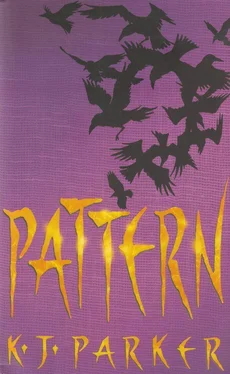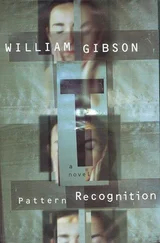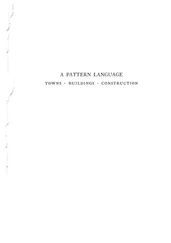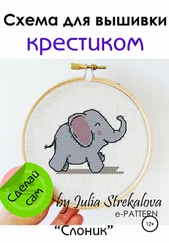K Parker - Pattern
Здесь есть возможность читать онлайн «K Parker - Pattern» весь текст электронной книги совершенно бесплатно (целиком полную версию без сокращений). В некоторых случаях можно слушать аудио, скачать через торрент в формате fb2 и присутствует краткое содержание. Жанр: Фэнтези, на английском языке. Описание произведения, (предисловие) а так же отзывы посетителей доступны на портале библиотеки ЛибКат.
- Название:Pattern
- Автор:
- Жанр:
- Год:неизвестен
- ISBN:нет данных
- Рейтинг книги:3 / 5. Голосов: 1
-
Избранное:Добавить в избранное
- Отзывы:
-
Ваша оценка:
- 60
- 1
- 2
- 3
- 4
- 5
Pattern: краткое содержание, описание и аннотация
Предлагаем к чтению аннотацию, описание, краткое содержание или предисловие (зависит от того, что написал сам автор книги «Pattern»). Если вы не нашли необходимую информацию о книге — напишите в комментариях, мы постараемся отыскать её.
Pattern — читать онлайн бесплатно полную книгу (весь текст) целиком
Ниже представлен текст книги, разбитый по страницам. Система сохранения места последней прочитанной страницы, позволяет с удобством читать онлайн бесплатно книгу «Pattern», без необходимости каждый раз заново искать на чём Вы остановились. Поставьте закладку, и сможете в любой момент перейти на страницу, на которой закончили чтение.
Интервал:
Закладка:
After the first couple of hours, he was too weary and busy to bother with sentimental stuff. The tree that was supposed to provide the middle cross-beam turned out to be ring-shaken; exposed to the wind on the edge of the copse, it had been twisted and flexed so much that the growth rings inside had pulled apart about a third of the way in, and great flakes of wood peeled off when they tried to rough-hew it. With luck, they'd be able to saw it cross-grain and get a couple of floor-joists out of it, but that was all. Accordingly, the third joist tree got a field promotion to middle cross-beam. Poldarn wasn't happy about that-he reckoned it'd be a bit too thin, because of the wane two-thirds up-but Colsceg and Carey and Eyvind looked it over and pronounced it suitable, provided they didn't hew it true square like the other cross-beams, but left more of the sapwood on. Poldarn agreed reluctantly but insisted that all the bark should come off, since woodworm and beetle love dry bark. Halfway through the morning, Rook's trick elbow gave out on him, and Poldarn had to take his place on the planking saw, which didn't exactly please him. He found the job absurdly difficult; his problem lay in maintaining a rhythm with the man on the other end of the saw (in this case, Colsceg's stolid elder son, Barn, who was known to be good at it). It worked out well enough, however. The hard part was always the first cut off the log, after it had been felled and dressed and heaved up onto the blocks. That was where the slabbing rail came in; you laid it over the curved back of the log and used its flat face to guide the saw, ensuring a flat, level finish on the bottom that would guide the next cut. As they went, they hammered wedges into the kerf to keep it from closing tight on the blade and jamming it. Even so, it was painfully hard work, tearing all the time at the tendons of the forearms.
Poldarn was happy to leave most of the hewing to the Colscegsford household. Whatever their faults, there was no doubt but that they were experts with the hewing axe and the lipped adze, chipping the timbers square as freely and easily as if they were hoeing a patch of earth. When Poldarn surreptitiously checked their work with a square, he found the angles were exact (how the hell could they do that, all by eye?) and there was hardly a toolmark to be seen; you'd think the work had been finished off with a plane. Essential, of course, to have all the surfaces flat and square if they didn't want to have to work twice as hard when the time came to cut the joints.
It took three days to fell, hew and plank out the timber, and suddenly there wasn't a copse there any more, just a huge pile of lumber, all carefully piled with wedges between each piece to allow the air to circulate in the stack and prevent warping. When they arrived on the fourth morning, the crows were sitting on the log pile, looking bewildered. How the hell do you expect us to roost on that? they seemed to cry as the work party walked them off. The fourth day was spent in cutting joints, and by now most of the enthusiasm had worn off. Poldarn got involved in a silent battle of wills with a Colscegsford hand called Bren over a sloppy mortice in the south end house-post; it'd have been all right if Bren had admitted at the start that he'd marked it out wrong, but he carried on working even though he knew the slot was skewed, which was just plain foolish (and typical of Bren, someone told Poldarn later, though on what authority he was left to guess). When he noticed and told him to stop, Bren tried to pretend that it was all perfectly good and that Poldarn couldn't judge an angle, so Poldarn had to fetch the gauge and show him. That made Bren even angrier, particularly when Colsceg started in on him as well. The issue gradually brought all work to a standstill, and it was only after Bren had suddenly got up and walked away that Poldarn and Eyvind were able to consider the problem calmly and decide what was to be done. Eyvind maintained that the post was useless and would have to be discarded; they'd have to hunt around for another piece of timber from somewhere, possibly rob a timber off the derelict barn. Poldarn wasn't having that. They were going to use this piece and no other, and if Eyvind was half the joiner he tacitly claimed to be, he'd be able to figure out a way of salvaging it.
Of course Eyvind didn't like that; luckily he took the implied slight as a challenge, and spent the next two hours cutting a block that exactly filled the defective mortice, dowelling it in tight and cutting a new mortice into the patch. The result, he claimed, would be even stronger than if it'd been cut from the whole wood, and if Poldarn wasn't entirely convinced by that, he could at least see that the job was good enough and would hold.
Things got better after that. Bren wandered back an hour or so after Eyvind had finished his patch; needless to say, the rest of the work he did that day was beyond reproach.
'Now all we've got to do,' Colsceg announced at the start of the fifth day, 'is put the bastard together.'
Poldarn had a feeling that Colsceg hadn't exactly dedicated his life to winning friends and getting people to like him, but that was a bit much, even coming from him. Still, nobody said anything-he'd have been amazed if they had-and they set to work with grim determination, boring the dowel-holes with augers and hammering in the pegs to assemble the sections of the frame. Much to Poldarn's surprise and relief, the plates, posts and sills slotted together perfectly-no yawning gaps, no frantic bashing to squash a fat tenon into a thin mortice-and once the sides were raised with the help of a gin-pole crane and a lot of bad language, the cross-beams and girts slotted in place without any fuss and the pegs went home without jamming or splitting.
'Don't panic,' Eyvind said, observing Poldarn's fraught expression. 'Something'll go wrong soon, and then you can relax.'
Poldarn shook his head. 'It's toying with me, I can tell,' he replied. 'Nothing fits together this easily, ever.'
'Bullshit,' Colsceg interrupted, his mouth full of pegs. 'You do the cutting-out right, it goes together first time. I never have any bother-Fuck,' he added, 'this goddamn tenon's too short. Who cut this tenon?'
Curiously, nobody could remember having worked on that particular timber; and, since it was out of the question that Colsceg could've made a mistake like that, they were left with the conclusion that at some point during the previous day, they'd been helped out by a bunch of careless elves.
'This is silly,' Poldarn said. 'We can't just pack in and start all over again because of one lousy inch.'
For once, Colsceg didn't seem to have an opinion on the matter in hand, and for a while, it was very quiet all round. Finally, Egil (who hadn't said a single word since the job began, as far as Poldarn could remember) cleared his throat and asked how it would be if they cut off the end and spliced in an extension?
Nobody said anything, and Egil shrugged as if to apologise for saying something crass. But then Poldarn said, 'Yes, we could do that', and Colsceg said, 'No, we couldn't, bloody thing'd pull itself apart soon as it took the weight,' and the two of them looked at each other for a while, and they decided to try it. Colsceg sketched out a joint with a scrap of charcoal-a murderously complicated affair that looked like two spiders fighting-while Poldarn solemnly picked up a saw and began to cut off the beam. The two of them worked in silence for over an hour while the others, who had nothing they could usefully do, looked on like a gaggle of expectant fathers.
'All right,' Poldarn said eventually. 'This ought to work.'
'And if it doesn't?' someone asked.
'Then we tear the whole bloody thing down and start again.'
The frightening thing was that he meant it. To everyone's relief, it didn't come to that. Colsceg's double-housed lapped dovetail, or whatever the hell it was, took the strain without so much as a creak, while Poldarn's joinery (When and where the hell did I learn that? he wondered) was so precise that they couldn't pull a single hair through the join.
Читать дальшеИнтервал:
Закладка:
Похожие книги на «Pattern»
Представляем Вашему вниманию похожие книги на «Pattern» списком для выбора. Мы отобрали схожую по названию и смыслу литературу в надежде предоставить читателям больше вариантов отыскать новые, интересные, ещё непрочитанные произведения.
Обсуждение, отзывы о книге «Pattern» и просто собственные мнения читателей. Оставьте ваши комментарии, напишите, что Вы думаете о произведении, его смысле или главных героях. Укажите что конкретно понравилось, а что нет, и почему Вы так считаете.












